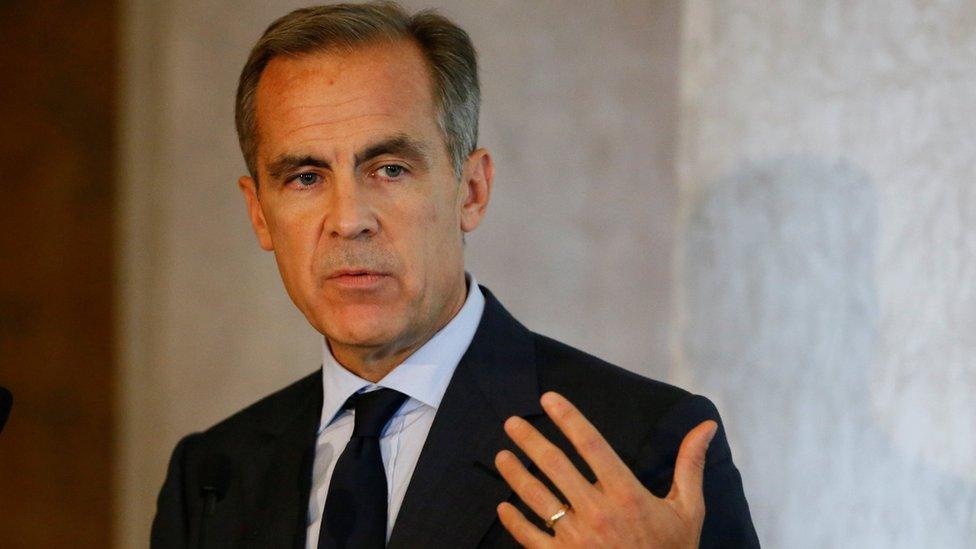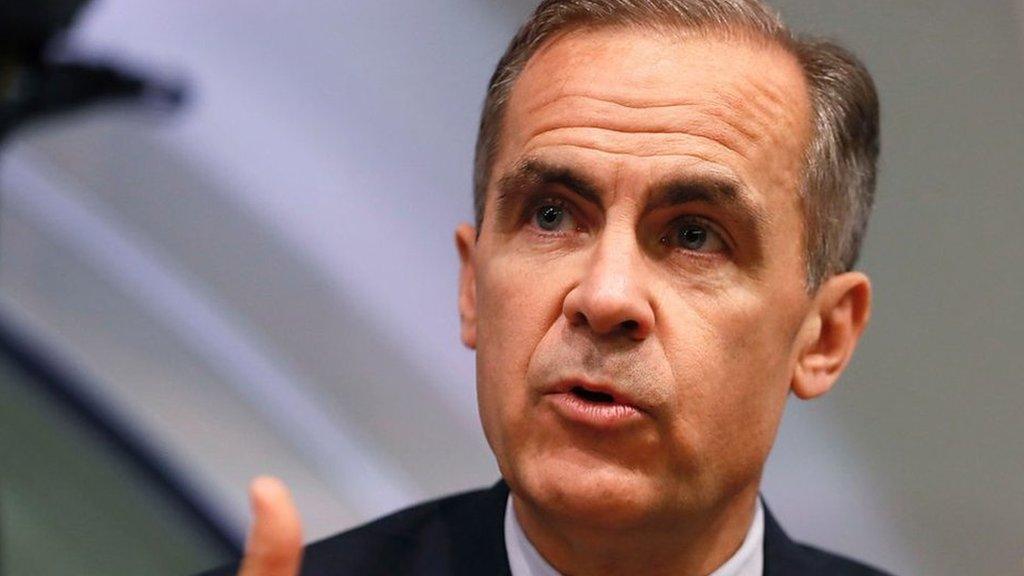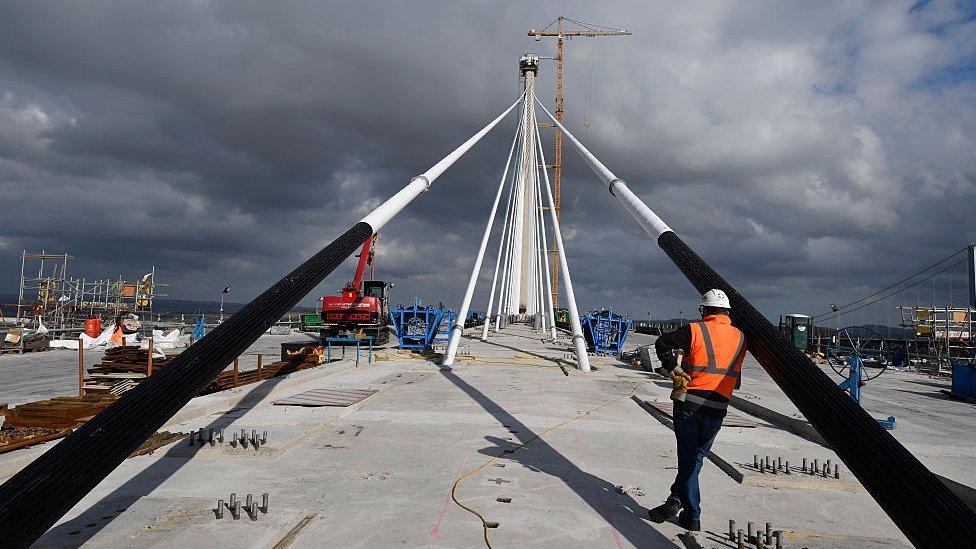UK service sector recovers from 11-month low
- Published

Activity in the UK's service sector picked up slightly in September, according to a closely-watched survey.
The Markit/CIPS purchasing managers' index, external (PMI) for services rose to 53.6, up from an 11-month low of 53.2 in August. Above 50 indicates growth.
However, the UK still lags behind the eurozone, where services PMI grew strongly to 55.8 last month.
IHS Markit said rising costs meant average prices in the UK were at their highest since April.
The "price pressures will pour further fuel on expectations" that the Bank of England will raise interest rates soon, said Chris Williamson, chief business economist at IHS Markit.
But it was likely to be a "difficult decision", because the economy was not growing that strongly, he said.
Rate rise?
Modest services activity, combined with a decline in construction and "robust" manufacturing, leaves the UK on course for "subdued" growth of 0.3% in the third quarter, according to IHS Markit.
Analysts were split on what the health check for the service sector, which covers a wide range of businesses from restaurants to law firms, meant for the UK's economic prospects.
"The services PMI indicates that the sector is still stuck in a rut, casting doubt over whether the Monetary Policy Committee will press ahead with a rate rise 'over the coming months,'" said Samuel Tombs, chief UK economist at Pantheon Macroeconomics.
But another economist, Paul Hollingsworth of Capital Economics, said the rise in September's services sector PMI would help to "assuage fears that the economy is losing momentum".

Bank of England Governor Mark Carney has said rates could rise in the "relatively near term"
The Bank has forecast economic growth of 0.3% in the third quarter, so the IHS Markit findings should not prevent the Bank from "pressing ahead and raising interest rates in November", Mr Hollingsworth said.
It comes after ratings agency Standard & Poor's this week said it was "a bit sceptical" the UK economy needed an interest rate rise.
S&P said hints from the Bank that it would raise rates soon seemed designed to push up sterling and cool inflation.
"Overall, we believe the Bank and Mark Carney's recent statements are primarily aimed at propping up sterling to reduce imported inflation pressures," S&P analysts said in a report.
They expect interest rates to rise from 0.25% to 0.5% next month, but for there to be no further rate rises in 2018.
- Published29 September 2017

- Published3 October 2017
